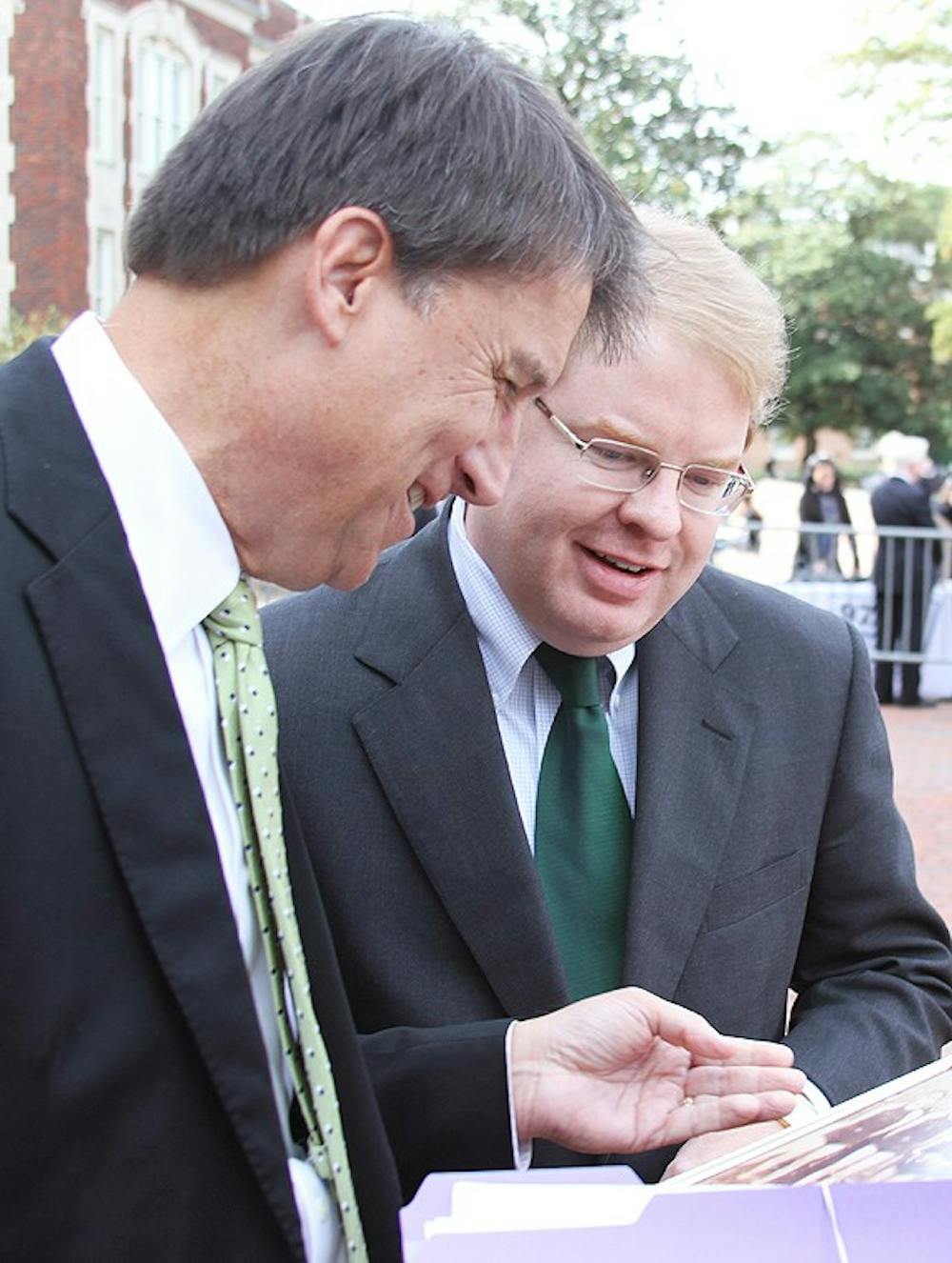The UNC system is seeking to open up new channels of communication with state legislators in a novel way.
But the commitment of those legislators to higher education affordability has been questioned — ever since they assumed power in Raleigh.
In a move that signaled a desire to become more intimate with the legislative powers that be, the system included legislators on its Advisory Committee on Strategic Directions. The group is charged with helping President Thomas Ross and his staff develop a five-year strategic plan for universities by January. The plan aims to maximize universities’ efficiency while maintaining academic quality and affordability.
After Republicans won control of both chambers of the N.C. General Assembly for the first time in more than 100 years in 2010, legislators faced a budget shortfall as large as $3.7 billion.
The GOP leadership opted to enact spending cuts — rather than raise taxes in a sputtering economy — that included a $414 million budget cut for the UNC system last year.
The system’s Board of Governors responded by approving an 8.8 percent tuition increase systemwide to offset the cuts.
Joni Worthington, spokeswoman for the system, said in an email that including legislators on the committee could make them better informed about budget decisions.
She said including legislators on the committee was not a lobbying tool.
But Jay Schalin, director of state policy analysis for the right-leaning John William Pope Center for Higher Education Policy, said the system might be trying to influence the state’s political leadership.




